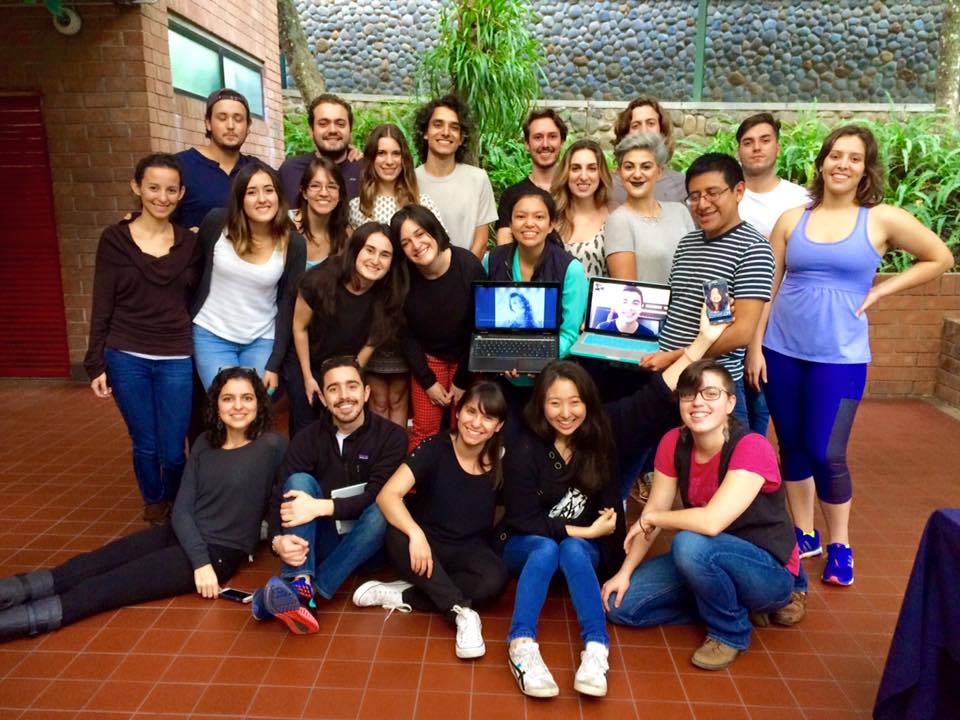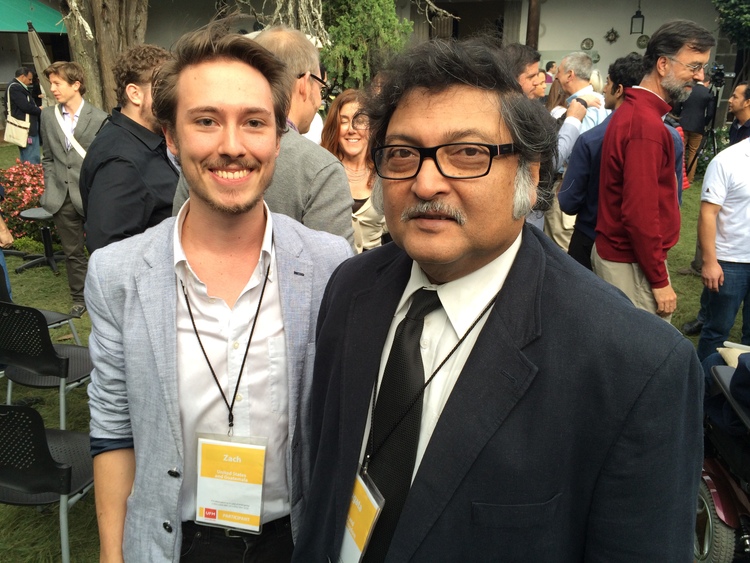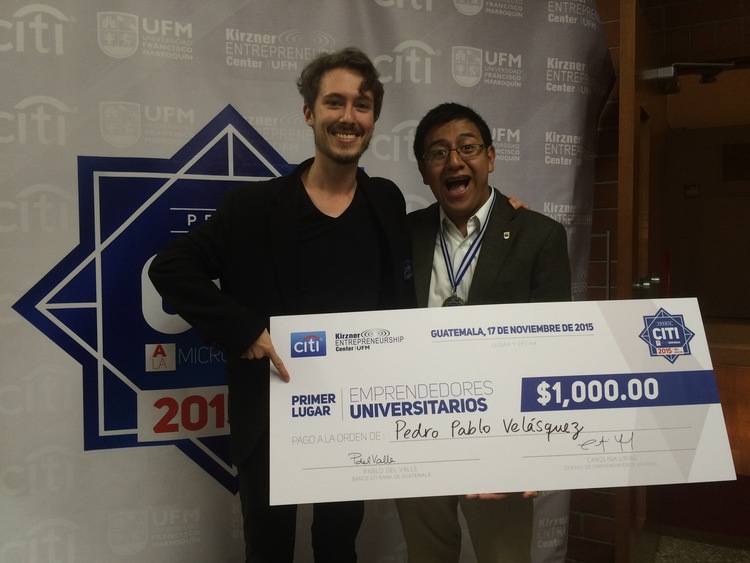 StartupCities
StartupCities






 Who?
Who?I'm a software engineer and entrepreneur focused on modern web technologies and AI.
Here's an ongoing autobiography, which also shares the story of my by-the-bootstraps "unschooling" education: now the subject of a chapter on grit and resilience in the bestselling book Mindshift by Barbara Oakley.
An angel investor once described my core soft skill in the role of founder or early team member as: "The ability to perceive exactly what needs to be done. And then to do it."
My experience working in difficult environments around the world means that I can be trusted to get things done, even when things go wrong.
In the past, I coined the term "Startup Cities" as co-founder of StartupCities.org and a startup spinoff, both of which focused on why startups should build cities. I now write about Startup Cities at StartupCities.com
I've won several awards for economic research and have been published or interviewed in Virgin Entrepreneur, a16z's Future.com, The Atlantic's CityLab, Foreign Policy, and in academic volumes by Routledge and Palgrave MacMillan.
Wait... what is this site?
This is my personal portfolio, inspired by the question: "What would the opposite of the two-color template developer blog look like?"
Have fun exploring!
Click the Start Menu to learn more.
Contact:hello @ zach.dev



The MPC
Innovating Education from Within Guatemala's Top University
When I left my position at the MPC, the students gave me this video as a going-away present
In late 2014, I got a phone call that would change my life...
The host of the project was Universidad Francisco Marroquín, one of the top universities in Central America. In 2012, they had formed an independent department with an autonomous profit center to create educational innovation. It was a skunkworks for positive educational change.
The division had been a source of problems. It had lost about 60% of its customers and hemorrhaged money every month. There had been serious interpersonal problems that created an atmosphere charged with negativity. Extreme disorganization meant that no one really knew what was happening inside and staff and students were cynical and demoralized.
Understandably, its funders wanted to shut it down.
A small group of believers in the potential of the project contacted me to see if I would consider taking it over and rebuilding it from scratch. I said 'Yes.'
On my first day I was scared.
I didn't feel well-prepared and I knew that some of the negative social dynamics would make changing the environment an emotional minefield.
If the task had been to invent something truly from scratch, I would have felt differently. But the train was already flying down the tracks – and it needed to be rebuilt before it drove off the cliff.
Interviews and Prototyping

I did customer interviews with 30+ people and took notes. I went through hundreds of internal documents – budgets, org charts, marketing material, student assignments, even old task lists – just trying to get a handle on where things were.
After a few weeks of understanding the organization, I went through my notes and tried to find the commonalities in what worked, what didn't, what made people stick around, and what made people leave.
I also grounded myself in the field by reading lots of books about different approaches to education like Pedagogy of the Oppressed by Paolo Freire, Deschooling Society by Ivan Illich, Democracy and Education by John Dewey, Discovery of the Child by Maria Montessori, and others. I got the chance to meet TED-Prize winner Sugata Mitra, who gave me invaluable advice on how to create self-organization in a learning environment.

With TED-prize winner and education pioneer Sugata Mitra.
Launch
The deadlines were grueling. For the MPC to survive financially, I needed to get new customers before the end of 2014, but I had started in the middle of October. By November I was only just understanding what happened.
So I did what you should do when you're freaking out about not being ready: I launched.
I synthesized everything I could from my interviews and put together a proposal. Really, it was a minimum viable product: nothing more than a few paragraphs and some checklists to help students understand what would be expected of them.
I presented it in a tense meeting to skeptical staff, investors, and students. I'll never forget the silence, broken only by the sound of papers shuffling, after my MVP had been distributed and dozens of people were looking it over.
In the end, people liked it. And the MPC received a new influx of great students.
Self–Organizing Education
I realized that people had really been sold many different products when they entered the program.
Each person had come to get an experience tailored to their interests. They wanted to cultivate themselves as an individual not as a homogenized 'student'. Students were extremely driven and tended toward creative fields.
Tons of money and time were spent trying to herd intelligent and highly idiosyncratic cohorts of students into common activities and curricula. But they wanted to work towards their own creative achievements.
I saw a way to fix the financial and organizational problems while also giving customers what they wanted.
Put simply, we modeled the MPC like an educational market in miniature. Students planned out their courses and projects each semester using a contract. This Learning Contract was an agreement between the program and the students about what they would accomplish over a 5-month period. It was all or nothing. Contracts were won or lost in their entirety.
Instead of paying for in-house professors, we gave students their own budgets. Students learned how to manage their own money by funding their own materials, hiring tutors, attendance in courses, or third-party curricula to help them reach their goals.
Some students invested in MOOCs, others bought tons of books and worked alone, others audited courses at the broader university. The thread that connected it all was a focus on building stuff, whatever your preferred creative form, and putting it in your portfolio.
Students enjoy extreme autonomy and engagement with the real world from early in their college career. This has led many graduates to become employed long before graduation or to graduate with their own businesses.
By the end of the program, all have well-developed portfolios of creative work.

With Pedro Pablo Velásquez, a student of the MPC, after he won a prize in social entrepreneurship for an "asistencias funerarias" project developed in the program.
Students' Learning Contracts became a cornucopia of collaboration, self-study, entrepreneurship, internships, and everything else you could imagine. No Learning Contract was identical – they expressed the individual dreams and ambitions of each student.
Activities ranged from the traditional to the wild: many students worked for companies and creative professionals, created festivals, wrote plays, business plans, novels, and product designs, others took vows of silence or apprenticed themselves to shamanic healers.
I cut overhead by giving money directly to students as an educational stipend and monitoring their purchases.
In the end, customer growth, lower overhead, better organization, and stronger marketing meant that the MPC achieved sustained profitability for the first time in its history.
Despite being affiliated with a university, this was true operating profit: no subsidies, no government-backed loans for students' tuition, and no grants or endowment of any kind.
In the end, we had enough of a financial cushion to make important new investments in the program, including a collaborative redesign and expansion of the physical space, learning excursions, books, and new technology.
What I Could Have Done Better
Once the MPC came out of crisis mode, I started facing the surrounding bureaucracy. I wasn't always perfectly aligned.
Once I was even reprimanded for distributing marketing flyers that had not been approved through the usual channels.
While I felt bad about getting into trouble, the posters were harmless and approval would have taken weeks that I couldn't spare. I figured: better to ask for forgiveness than permission.
If I were to do it again... well this is the part where I'm suppose to say that I would have spent more time winning allies within the organization before pushing so hard for the marketing. But the truth is that I would probably just not ask for approval again.
I made a serious hiring error. I was asked to let go of a person who had contributed to the toxic and negative environment of the department. He was young and I knew would not easily find work elsewhere. I felt bad and my sentimentality about the crappy situation meant that I kept him around by giving him menial tasks.
In the end, the overall experience was made harder by including this person's negativity and unwillingness to collaborate. I owed it to the customers and the rest of the staff to have been a better leader and dealt with this problem right from the start.
I also should have hired more people, more quickly. I was so worried about running out of money that I relied on a skeleton crew for too long. Everything turned out alright, but we pushed ourselves to our limits and stretched ourselves too thin as the program grew.
What Customers and Partners Had to Say
“Your work speaks highly of how to turn talk into action. Before we would dream wonders ... but none of this ever happened until now.” - Student at MPC
“Zach, I really admire your disposition and overall positive energy when dealing with fellows or students. I know you have a lot of work and you manage to still be very graceful and not dismissive at all of others' worries, questions, or insights.” - Student at MPC
“I am tremendously impressed by Zach’s work, which is at the cutting edge of modern pedagogy.” - Barbara Oakley, Professor of Engineering and creator of the Cousera MOOC 'Learning How to Learn'
“Thanks for being a leader, and for teaching us to be leaders, too.” - Student at MPC
“...your adventures expanded the limits of what I thought was possible (in life)." - Student at MPC
“You have no idea how important your support was. Until this year, I hadn’t faced the thing that prevented me from producing the work I wanted to produce. I mean, “The Resistance”. It was a total shit show, and in good part it still is. The difference is that now I get to recognize it exists and most importantly, that I can overcome it. That’s thanks to you.” - Student at MPC
“I am afraid the only thing I can say is thank you. You created a world where everyone fits in. You treated me like an adult from the beginning, even though I look quite young. I am sure your ability to create innovative and one-of-a-kind things will be highly in demand” - Student at MPC
“There are marvels occurring in the MPC under your management. You should feel calm and proud.” - Giancarlo Ibárgüen, Former President of Universidad Francisco Marroquín




















